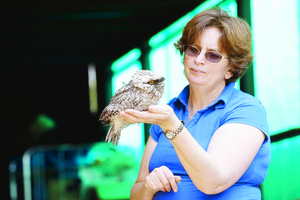
By NICOLE VALICEK
AS we ready ourselves for a scorching summer, wildlife rescuers and carers in the west are urging people to consider creatures that can’t replenish themselves.
Dawn Stanford who runs the only volunteer wildlife shelter in Wyndham, Wildlife out West said over Christmas and New Year’s 32 heat-stressed and injured native Australian wildlife were rescued – a large increase from the previous year.
Some of the animals rescued included bushtail and ringtail possums, wattle birds, magpies, ravens and swallows.
Mrs Stanford said the number of animals being rescued on hot days in the west had increased, with eight dehydrated and heat stressed possums rescued on the first 40-degree Celsius day.
“The fallout has continued during the hot days and the days immediately after. They’re still suffering from heat stress – it doesn’t just go away it takes a few days to rejuvenate their bodies.”
Mrs Stanford has urged people to put a bowl of water outside their home for wildlife.
“Just put water out, make it accessible and away from your dogs.”
“Put a twig in the water so the smaller animals (including gecko lizards and small birds) can get in and out without drowning.”
Mrs Stanford was happy to report that more people in the west were becoming aware of wildlife and more people were making the call if they saw or came across an injured animal.
According to Mrs Stanford in the last calendar year, which ran from 1 March to 28 February 2012, 600 animals were rescued compared to 700 coming into 2013 and a new calendar year.
“We think it’s fantastic, it’s great that people are aware that there is somewhere for them to take sick, injured wildlife, they don’t need to just leave them because there is no one to take them.”
People who come across sick, injured or orphaned wildlife in the west can contact 0450 016 102.

